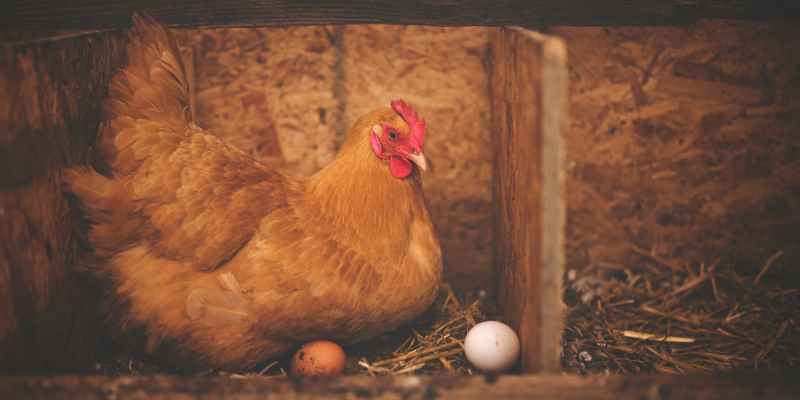Moulting and Feather Damage
Chickens go through a natural moulting process after summer as the weather becomes colder. Your birds won’t look their normal beautiful selves for a few weeks! Birds will lose their glossy feathers from the head down and they will be replaced by new pinfeathers. This process require a lot of energy and hens may temporarily stop egg production during the moult. During this time it is important your birds get a good quality diet with enough protein, you may need to switch to a special higher protein feed. Try not to handle your birds too much as they may be sore as they moult.
Problems can occur during a moult if chickens are stressed due to things like illness, overheating or water deprivation; extreme stress can even induce the moult to occur. Chickens may peck each other if they become bored or too stressed, pecking can also occur if their diet is too low in nutrients. Feathers are 85% protein and chickens will pluck them from others or themselves to eat.
Egg Bound Birds
Eggs can occasionally get stuck, causing the hen to strain without passing anything. This can be fatal if not treated. An egg bound hen may walk with their bottom closer to the floor and you will be able to feel a hard lump in her abdomen.
A warm bath may help your hen pass the egg by relaxing her muscles and easing the process, however if this doesn’t produce an egg then you should contact a vet ASAP.
Impacted and Sour Crop
The chicken’s crop is found at the base of the neck and is part of the oesophagus, it is where food is first digested. The crop fills up with food after a bird has eaten and should empty overnight as the chicken digests; if your bird has a full crop still by morning then it is likely to be blocked. Blockages can occur due to birds eating long, tough blades of grass or anything indigestible like twine or rubber left in the garden. Stodgy kitchen scraps like bread or pasta can also lead to an impacted crop so try to keep scraps to healthy veg peelings instead. Impacted crops can turn into sour crops whereby a yeast infection takes hold in the crop, this can easily be identified by a foul smell from the bird’s beak.
Impacted crops can occasionally be cleared by gently massaging the area but if this proves ineffectual then the crop should be cleared by a vet, further attempting to clear a blockage at home without proper guidance could result in the bird suffocating.
Call us on 01435 864422 if you have any questions about chicken care.


